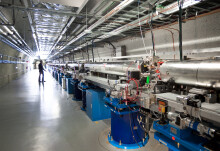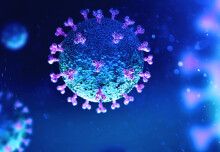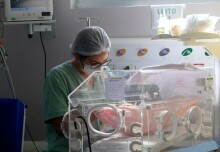

News in brief
Brain fluid surgery to a world-first lunar-Earth flyby: News from Imperial
Here’s a batch of fresh news and announcements from across Imperial.



Brain fluid surgery to a world-first lunar-Earth flyby: News from Imperial
Here’s a batch of fresh news and announcements from across Imperial.


Imperial joins new Doctoral Training Centre funded by Alzheimer’s Society
Led by the University of Manchester, the centre will support and nurture dementia researchers at the start of their career.


Drug could boost chemotherapy to treat aggressive brain tumours
Imperial researchers have discovered a drug which could boost the effectiveness of chemotherapy to treat aggressive brain tumours in adults.


Eight things we learned about humans and technology at Tech Foresight Day 2024
The ways different generations interact with technology was the hot topic at Imperial Tech Foresight's latest event.


Network Summer Meeting 2024
All day Summer Meeting spanning fungal biotechnologies, food security and human health.


Scientists find sleep may not clear brain toxins
The brain’s ability to rid itself of toxins may actually be reduced during sleep, contrary to the leading scientific theory.


Essential clock gene plays key role in neuroprotective pathways
A new study offers deeper insight into how a neuroprotective pathway is regulated both by temperature and the body clock.


Longer mobile phone use does not increase the risk of brain tumours
Using a mobile phone for extended periods is not linked with an increased risk of brain cancer, a study shows.
 3
3


COVID-19 may have small but lasting effects on cognition and memory
COVID-19 may have an impact on people’s cognitive and memory abilities that lasts a year or more after infection.


Blood test could reveal cause of brain injury in newborn babies
Researchers from Imperial College London have shown that a blood test can pinpoint the underlying cause of brain injury in newborns.